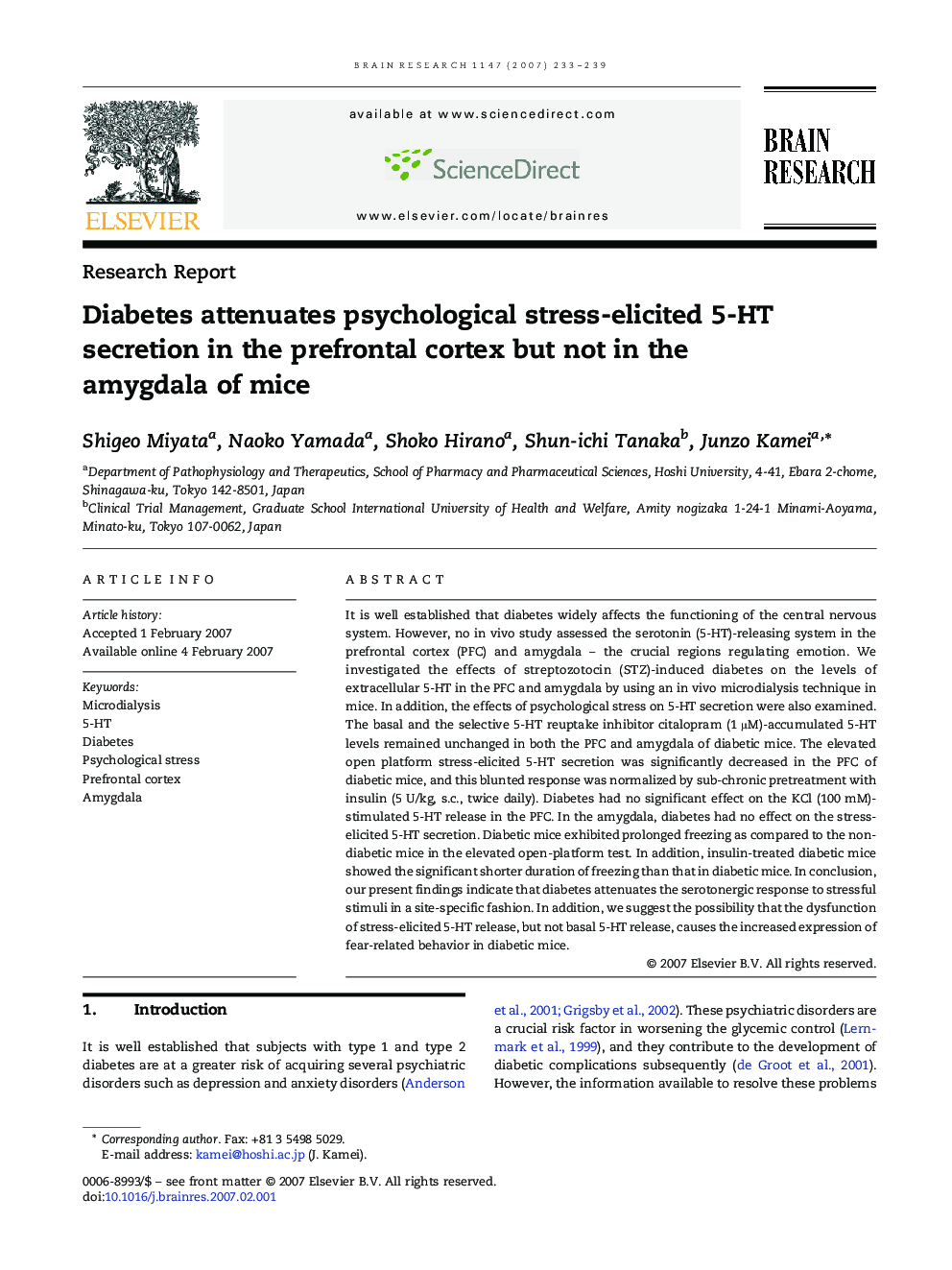| Article ID | Journal | Published Year | Pages | File Type |
|---|---|---|---|---|
| 4331190 | Brain Research | 2007 | 7 Pages |
It is well established that diabetes widely affects the functioning of the central nervous system. However, no in vivo study assessed the serotonin (5-HT)-releasing system in the prefrontal cortex (PFC) and amygdala – the crucial regions regulating emotion. We investigated the effects of streptozotocin (STZ)-induced diabetes on the levels of extracellular 5-HT in the PFC and amygdala by using an in vivo microdialysis technique in mice. In addition, the effects of psychological stress on 5-HT secretion were also examined. The basal and the selective 5-HT reuptake inhibitor citalopram (1 μM)-accumulated 5-HT levels remained unchanged in both the PFC and amygdala of diabetic mice. The elevated open platform stress-elicited 5-HT secretion was significantly decreased in the PFC of diabetic mice, and this blunted response was normalized by sub-chronic pretreatment with insulin (5 U/kg, s.c., twice daily). Diabetes had no significant effect on the KCl (100 mM)-stimulated 5-HT release in the PFC. In the amygdala, diabetes had no effect on the stress-elicited 5-HT secretion. Diabetic mice exhibited prolonged freezing as compared to the non-diabetic mice in the elevated open-platform test. In addition, insulin-treated diabetic mice showed the significant shorter duration of freezing than that in diabetic mice. In conclusion, our present findings indicate that diabetes attenuates the serotonergic response to stressful stimuli in a site-specific fashion. In addition, we suggest the possibility that the dysfunction of stress-elicited 5-HT release, but not basal 5-HT release, causes the increased expression of fear-related behavior in diabetic mice.
